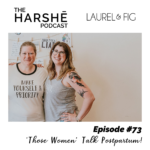
If you’ve been pregnant, chances are you’ve had to decide whether or not to take a ‘Gestational Diabetes’ test. You’ll usually be given a form to go have one of two ‘routine’ tests, the Glucose Challenge Test or the Glucose Tolerance Test, and that’s that. When I was pregnant I wasn’t really given any explanation about the test except that I would have a drink that was “like sweet, flat lemonade” (which it kind of is). I had no idea what Gestational Diabetes was. I didn’t think I had the option not to take the test, and I had no idea what ‘failing’ the test would mean. Unfortunately, it was only after I had ‘failed’ the test and was diagnosed with Gestational Diabetes that I researched more about the unreliability of the formal tests and the impact the diagnosis would have on my prenatal care.
The Glucose Challenge Test (GCT) is a relatively simple test: at 24-28 weeks gestation you drink a sweet drink with a high glucose load, usually around 50g of carbohydrate, and a blood sample is taken one hour later. Your blood glucose or blood sugar levels are tested and then compared to the ‘average’ levels. If your blood sugar levels are over the ‘average’, you are considered ‘at risk’ of Gestational Diabetes Mellitus (GDM), and will be sent for the Glucose Tolerance Test (GTT). This is a more involved test. You may be sent straight to this test if you are considered high risk of developing GDM. You must fast for approximately 10 hours, and then attend the pathology clinic for around 2 ½ hours. You will need to drink another sweet glucose drink – this one usually has around 75g of carbohydrate (the equivalent to eating 5 tablespoons of sugar or 3-4 pieces of white bread). A series of three blood tests will be taken – one before you have the glucose drink, another test one hour after you’ve had the drink, and another one hour after that. This series of blood tests are graphed and compared to the average levels. What the doctors are looking for is a normal fasting blood sugar level, a blood sugar peak at one hour, and then back within ‘normal’ range two hours after the drink.

The ‘average’ and ‘cut-off’ levels seem to vary depending on where you live, however generally in the USA, UK, Australia and New Zealand, women who have blood sugar levels above 8-9mmol/L (140-160 mg/dl) at two hours after drinking the 75g-glucose drink get the diagnosis of GDM.
Recommendations from some of the prominent College’s of Obstetrics and Gynaecology (ACOG, RAZNCOG and RCOG), state that every pregnant woman, regardless of risk or medical history, should be screened because the rate of GDM among expectant mothers is rising – although, that statement itself is ironic! They also claim that the GCT/GTT is essential: the potential ‘risks’ of GDM mean that women need to be under strict management during pregnant, labour and birth for optimal maternal and fetal outcomes. However, there are many medical and birth professionals who, after reviewing the data themselves, have decided to do away with routine testing for GDM.
 When you think about the test, it’s not surprising that many women ‘fail’ or are considered ‘borderline’ or ‘pre-diabetes’. Most women are also asked to sit and not engage in any sort of activity for the entire two hour test, which is a factor that can lead to higher blood glucose levels. Pregnant women also naturally have some form of insulin resistance thanks to the pregnancy hormones. You drink the sweet glucose drink (a fast-release carbohydrate load that is larger than someone would have in an average meal) without any form of protein to slow the release of glucose. It’s easy to see why many have decided that the formal tests are not an accurate representation of the mothers ability to tolerate carbohydrates in everyday meals. Dr. Sarah Buckley, GP and obstetric professional, recommends against routine testing for GDM for most women. Ina May Gaskin, a Certified Professional Midwife and founder of The Farm Midwifery Center, also reports that up to seventy percent of women who repeat the test get a different result than on their initial test.
When you think about the test, it’s not surprising that many women ‘fail’ or are considered ‘borderline’ or ‘pre-diabetes’. Most women are also asked to sit and not engage in any sort of activity for the entire two hour test, which is a factor that can lead to higher blood glucose levels. Pregnant women also naturally have some form of insulin resistance thanks to the pregnancy hormones. You drink the sweet glucose drink (a fast-release carbohydrate load that is larger than someone would have in an average meal) without any form of protein to slow the release of glucose. It’s easy to see why many have decided that the formal tests are not an accurate representation of the mothers ability to tolerate carbohydrates in everyday meals. Dr. Sarah Buckley, GP and obstetric professional, recommends against routine testing for GDM for most women. Ina May Gaskin, a Certified Professional Midwife and founder of The Farm Midwifery Center, also reports that up to seventy percent of women who repeat the test get a different result than on their initial test.
But… what are the options?
Well, a lot doctors and midwives won’t give you any. At a hospital appointment I once had, my partner and I sat and listened to a midwife argue for 15 minutes with a woman who refused the routine GDM test. Over the course of the conversation, the woman asserted herself, telling them she was 34 weeks pregnant, she checked her blood sugar at home periodically, she’d had a scan, everything was fine, and she didn’t want the test. The midwife belittled her, bringing her weight into the conversation. Tried to scare her by predicting the size of the baby. Insinuate that she was uneducated and naive and she didn’t understand the risks. She even tried to pull the “You’re jeopardising the safety of your baby, it’ll be on your head if something happens” card. I’m not sure what became of the woman, but she was just one woman in what I imagine is a sea of pregnant women trying to assert themselves in this medicalised and interventionist culture of birth at the moment.

The mother in my story knew a great option. One that WAS reflective of real life – periodic home blood sugar tests. If you are comfortable with refusing the GCT/GTT, but still feel the need to have some kind monitoring, then this is one of your options. It is logical and obvious that testing two hours at home after eating your lunch and doing whatever you normally do afterwards, would give you a good idea about whether or not your body is having trouble. These results are usually compared to the ‘average’ results – usually aiming for less than 5.5mmol/L (100mg/dl) while fasting, and less than 6.7mmol/L (120mg/dl) two hours after meals. This could give you an idea of whether you need to readjust your diet or consider medical management. And, going by the stories I have read and the women I have talked to, this seems to be the option many homebirth midwives give their clients. However, it can be a hassle if you forget, or if you’re in the habit of frequent eating, because for accurate results you need to eat your meal and then nothing but water for two hours. This is because other food or drink could raise your blood sugar levels and give an inaccurate reading of your body’s ability to handle the carbohydrate load of your meal.
Another option some professionals give is to keep the formal test, but swap the drink for something else with an equivalent carbohydrate load. This attempts to mimic a real-life situation, and is thought to be more accurate than a test based on the glucose in the sweet drink. However, this is not recommended by some medical professionals because eating a meal takes more time than the 5-10 minute limit you are given when drinking the glucose drink. Also, different types of foods have slower or faster releasing glucose, so the results can’t really be compared to the ‘average’ results after the glucose drink.
If you choose to forgo the routine testing for less invasive tests or none at all, educating yourself is important. Be aware of the quality of your carbohydrates and how to eat well-balanced meals that include low-GI (glycemic index) carbohydrates. This is a good way to keep your body healthy, diabetes or not. Dr Michael Odent explains this practice quite well in his article ‘Gestational Diabetes: A Diagnosis Still Looking For a Disease?’ (linked below). Alongside a balanced diet, Buckley, Gaskin and Odent all recommend regular low impact exercise throughout pregnancy to help the body lower blood glucose levels naturally.
Keep reading: The Truth About Gestational Diabetes {And Why It’s Not Your Fault}
References:
American College of Obstetricians and Gynaecology, The [ACOG]. (2011). Screening and diagnosis of gestational diabetes mellitus. Committee Opinion No. 504. 751–3. Retrieved on March 31, 2013, from http://www.acog.org/Resources_And_Publications/Committee_Opinions/Committee_on_Obstetric_Practice/Screening_and_Diagnosis_of_Gestational_Diabetes_Mellitus
Australasian Diabetes in Pregnancy Society, The [ADPS]. (2002). Gestational Diabetes Mellitus – management guidelines. Retrieved on March 31, 2013, from http://www.ranzcog.edu.au/the-ranzcog/policies-and-guidelines/policies-procedures-document-library/doc_download/454-gestational-diabetes-mellitus-management-guidelines.html
Buckley, S. J. (2008). ‘Gestational Diabetes Testing’. In Gentle Birth, Gentle Mothering: A Doctor’s Guide to Natural Childbirth and Gentle Early Parenting Choices. Retrieved on March 31, 2013, from http://www.fullcirclemidwifery.com/2009/02/gestational-diabetes-information/
Goer, H. (1996). Gestational Diabetes: The Emperor Has No Clothes. The Birth Gazette, 12(2). Retrieved on April 1, 2013, from http://www.gentlebirth.org/archives/gdhgoer.html
Gaskin, I. M. (2003). Ina May’s Guide to Childbirth. United States: Bantam.
National Institute for Health and Clinical Excellence [NICE]. (2008). Diabetes in pregnancy: Management of diabetes and its complications from pre-conception to the postnatal period. Clinical Guideline 63. Retrieved on April 1, 2013, from http://www.nice.org.uk/nicemedia/pdf/CG063Guidance.pdf
Odent, M. (2004). Gestational Diabetes: A Diagnosis Still Looking For a Disease? Primal Health Research: A New Era in Health Research, 12(1). Retrieved on April 1, 2013, from http://www.bellybeginnings.com/Handouts/GestationalDiabetes-Odent.pdf
Royal Australian and New Zealand College of Obstetricians and Gynaecologists, The [RANZCOG]. (2011). Diagnosis of Gestational Diabetes Mellitus. Retrieved on March 31, 2013, from http://www.ranzcog.edu.au/component/docman/doc_download/941-c-obs-07-diagnosis-of-gestational-diabetes-mellitus-.html
Royal College of Obstetricians and Gynaecologists, The [RCOG]. (2011.) Diagnosis and Treatment of Gestational Diabetes. Scientific Impact Paper 23. Retrieved April 1, 2013, from http://www.rcog.org.uk/files/rcog-corp/uploaded-files/SIP_No_23.pdf










32 Comments
Alicia
Good post. I’m on thebump.com and it amazes me how many women there think there is no other option, and think what their OB requires is THE only way to deal with this and anything else is jeopardizing your baby.
Last pregnancy, I considered it and decided not to test at all. My midwife was fine with that. This time, she would have been fine with this too, but I decided to monitor at home for a few days. My numbers were fine (and I’m overweight and my dad has type 2 diabetes).
All that to say, women should look into the options and understand that in other countries, this isn’t the standard way to approach GD and there ARE reasonable options besides the glucola drink.
Alicia
PS. your “keep reading” link is a dud
Mrs. BWF
It will be live tomorrow. 😉
Julie
My midwives will suggest an A1C for women with suspected diabetes. This test is supposed to give an idea of your average blood sugar levels over the past 3 months, and doesn’t require any fasting or extra glucose. It’s worth a try to ask for it, because it reflects your own real-life diet and activity level, and it’s widely accepted among doctors who treat diabetics.
Victoria S
My OB did an A1C as well as the 3 hour. My A1C came back normal, but two of my levels on the 3 hour OGTT were slightly (less than 5 points) higher than allowed, and they still gave me the diagnosis.
Monica
I was diagnosed with GD in my first pregnancy. By the end of my first pregnancy my levels were so well controlled is what thought that I didn’t actually have GD.
Now I am pregnant again and again diagnosed with GD! I only failed by 8 points on the cut off level. Last time I was pregnant I was told by a doctor that when i woke up my blood sugar should be 120 or less and after two hours it should be 140 or less. My midwife had a stricter level cut offs. She wanted the 100 upon waking and the 120 or less after 2 hours. So, I am going by what the doctor said for levels. But, in all honesty I don’t check my levels very often because I don’t need to. My A1C test showed proof positive that I don’t have GD. So, I really believe I have been misdiagnosed. I say this all the time to my doctors. I tell them all the time that when I do test my levels are always normal! Always. Unless I purposely eat a “big bowl” of ice cream. Which my level goes up to 140. So, even then it’s not that big of a deal. Also, my baby was a mere 6 pounds 10 ounces. So, the whole crap about having a big baby is just scare tactics. I make sure I eat healthy and stay away from bad carbs and sugars. It’s ok to have treat once in a while too. My baby turned out healthy and so will this one. I am not scared and I think that GD is just another card to play against what mom wants for her birth. They use it to make you feel like your body isn’t working right. They use it against you and treat you like a kind of time bomb. Just because you have been diagnosed with it doesn’t necessarily mean that you actually have it. The test can be wrong. That is my opinion. It is my belief that I don’t have it. But, because of the cut off level and the type of drink given I failed it. Just plain stupid.
Becky Warren
I’m thinking the same thing as you. I was diagnosed and sent straight to GD class from the one hour test. (I don’t even know my results, they didn’t tell me) I went to the class and learned how to control my sugars and do the sugar test. They want my sugars to be 95 when I wake up and 120 or lower 2 hours after eating. The only time I’ve been higher is 99 one morning, all the other times I’ve been lower than 120, whether it still be in the 100’s or in the 90’s. I go back to the doctor next Thursday, so maybe they can reevaluate or something.
Rebecca
Good post. I know some women who have refused the test and not come across much resistance, but they had previous “normal” pregnancies. My OB recommended I eat a protein only breakfast before my glucose challenge to ensure that I got a more accurate result. With both my pregnancies I had a hard boiled egg or two and some water (you can’t have ANY sugars which would include breads, dairy, fruits and vegetables). Both tests came out perfect.
Rebecca Grace
Our local hospital system had recently switched to having every pregnant woman do the GTT but within months had to switch back to due to patient complaints and not having enough providers/educators to deal with the influx of new GDM moms! It is so discouraging to hear your providers say “if you are one point over you are diagnosed with GDM and we will manage your pregnancy more closely…” I guess they are forgetting that whole individualized care thing they preach! As always, we need to remember that we do have a choice and a right to refuse!
Glad to see this post as at my last appointment (26weeks) I was bombarded with all the tests that need to be done in the next 4 weeks… and then as a side note asked how I was feeling and if the baby is moving?!?! I have never felt so uncared for by the healthcare system in my life!
Bad Wolf
This is one test that I feel was unnecessary in my last 5 pregnancies (and in this one) but that I do to appease my health care provider. The thing that gets me about the test is when I compare notes with other pregnant women the protocol seems vastly different, in ways that would affect their results. Personally I have never been instructed as to not eat or what to eat or drink before the test. Other women have said their provider told them a certain meal to eat, told them to fast, and many different variations thereof. Personally I have always eaten a good mix of protein and complex carbs that have a low glycemic index and my numbers have always been fine. But the difference in protocol leads me to believe that the test isn’t very scientific. Why do a test or prescribe it in a way that could lead to a lot of false positives?
Cheney Stanley
My midwife is in a practice with 3 ob/gyns and 4 other midwives. At their practice, they have measured the glucose in Jelly Belly brand jelly beans (if my memory serves me correctly it is exactly 43 jelly beans = the drink). They give you the option of eating the 43 jelly beans in 10 minutes or drinking the drink in 10 minutes and coming in for the blood test an hour later. I thought this was a great alternative to that sugary drink – it was exciting to go to the candy store at the mall and pick the flavors I wanted 🙂 I thought it was going to be easy to eat the jelly beans, but it was actually a challenge. From my experience, I found I would never eat that many jelly beans in one sitting…so I think the amount of glucose that is required to measure for GD is not typical of a normal meal or even a snack. However, I do think that testing for GD is beneficial in cases where it is truly found. Maybe there could be some kind of study done that could develop a risk assessment tool doctors and midwives could use to evaluate mothers-to-be as to whether they go for the 1 hour test, and then if they need the 3 hour test.
Maureen
Hello… i like your article… but I think I didn`t really get it…
(as I am from Germany, I`m not a native speaker, so sorry…)
Well… I was told that Gestational Diabetes that is not recognised and not treated can/will lead to babys death.
And the test – a simple drink and a blood test – could prevent this…
Therefore I ask myself now: what`s the problem with the test?
Thank you 🙂
Alisia Cameron
Hi Maureen,
I’m definitely not saying that Gestational Diabetes is nothing to worry about, just that the test is unrealistic and notoriously inaccurate. Gestational Diabetes is real, and there are real risks associated with consistently high blood sugar in pregnancy (i.e. unmanaged Gestational Diabetes), but many women are misdiagnosed and then labeled as high risk for no reason. This post aims to inform women of the options that they have to test their blood sugar and monitor for any issues. 🙂
Tina
I wish I had read this earlier this week before I had the test. For some reason my midwife recommended I go straight to the second test and was told to fast for 12 hours. A hour after drinking the drink and during my second blood test I fainted. It has been days since the test and I still don’t feel right. I still have a headache and have lost my appetite. Having a pregnant women fast for 12 hours doesn’t seem like a great idea. Even the baby wan’t impressed. He was kicking me aggressively from the moment I drank the sugar mixture. Poor baby was making it very clear he needed/wanted some nutrition.
Laurel
Thanks for this! In early pregnancy (11? weeks) I was given the routine pregnancy panel which had just begun to include the A1C. They usually use this to test for diabetes (not gestational). Turns out I was right on the border so they said I should attend a nutritional session. The nutritionist basically said we needed to only eat fake sugar (diet soda vs fruit for example) and test our blood sugar often. Made no sense to me and I left early. I ended up with wonderful midwives, never got the official test and my daughter was born 41+1, 8lbs, 15oz, I gained 45 lbs and lost it all very quickly. And no, I don’t think I ever had GD. Eat healthy, exercise and for most of us that’s all you need!
Soooo glad I sought the right care for me.
Ashley
The ‘Keep Reading’ link is still a 404… 🙁
I was “diagnosed” with GB after failing both my 1 hour and 3 hour glucola tests. I’ve since been told that my “fasting” result should be under 100, and my result 2 hours after meals should be under 120.
However, at the appointment with a nutritionist following the 3 hour tests, she revealed my results and the guidelines for the 3 hour test are different from what they require you to achieve day-to-day. That seems very inconsistent to me!
I was given a printout about GB with a meal plan. On the printout, the results for my 3 hour glucola test say:
Fasting: <95 mg/dL
1 Hour: <180 mg/dL
2 Hour: <155 mg/dL
3 Hour: <140 mg/dL
If the "goals" I was given at that appointment were to test my sugar after fasting and receive a reading of 100 or less, why is the guideline during the 3 hour glucola test 95 or less? And if I was told that 2 hours after eating I should have a reading of 120 or less, why is the glucola test limit 155?
My results in the same order were 104, 209, 177, and 134. I failed 3 of the 4 "limits." The nutritionist even said "Oh, so it looks like your body DID catch up in the end."
The meal plan was a total joke. It calls for 6 meals a day, with 2 hours between meals. For breakfast you're allotted 15g carbs, 10am snack 30g carbs, lunch 60g carbs, 2pm snack 15g carbs, dinner 60g carbs, and evening snack 30g carbs.
I charted what I ate and my sugar levels. Let's put this into perspective. They wanted me to stick to 15g carbs for some meals. I had a PB&J and some Ovaltine for lunch one day, which came to 84g carbs. 84! 15g carbs is the equivalent to ONE SLICE of bread.
2 hours later I tested my sugar, and I got a reading of 116.
The only time I've ever tested over my limits was after binge eating an entire box of macaroni and cheese or a half pint of ice cream…. the obviously excessive intake levels correlated to my higher sugar levels.
So. I call BS, in my case anyway. I will still test here and there out of curiosity, maybe once a week. But I strongly encourage those who have been "diagnosed" with GB to experiment with their food choices and carb limits. Having 30 or 40 carbs at a "15 carb meal" may not put you over the limit. For some, it may. For some, rice will make sugar levels skyrocket. For another, rice may be fine but refined sugars may be a no-no.
EVERY BODY IS DIFFERENT, I certainly did not appreciate being slumped into a category of "failure" and being told what I can and cannot eat. Figure out your own limits. No doctor's medical degree or textbook can accurately predict how YOUR body will deal with blood sugar. Find what works for you, and don't feel discouraged.
Renee
I was diagnosed with GD in my first pregnancy and they told me I wasnt allowed to breastfeed for 24 hours so they could monitor my daughters sugar levels. I was also scared into having a c-section due to the dr. telling me GD babies are always larger and he thought she was going to be 10lbs (she was only 8lbs 12oz).
Fast forward 3 years and I am pregnant with my 2nd. I was using a new doctor this time around, and as I was previously diagnosed with GD the new dr sent me for the 1 hour glucose test and said I failed (at 11 weeks pregnant), they had me on 18 units of insulin daily and checking my sugars 4x a day (all of them fell w/in the normal range). After doing a bit of research I left that doctor for a new one and they completely removed me off the insulin and I can monitor as I see fit. I do get sugar spikes after eating fruit, so I know to remove that from my diet or follow it with a walk and lots of water.
So glad I poked around more this time then last time and have a doctor who isnt in the RX companies back pocket and actually has my interest at heart.
Sharelle
I love this article. I took the test with my last pregnancy at 24 weeks. My nurse ended up drawing my blood at 50 minutes instead of 60. My levels were 140 so they tried to force me to take the fasting one. I was SO upset. I absolutely refused. I was bawling on the phone with the nurse. I couldn’t handle doing it again. No way. I couldn’t afford to take work off for the time required anyways. So the dr agreed to give me a prescription for a blood glucose meter. My numbers were never high, and occasionally low. Nothing the Dr was concerned with.
That being said, I went to a group practice obgyn and saw a different Dr one month. She told me that my Dr was too nice and she would have made me do it. I forgot my book with my numbers that month, and she told me I have to bring it so she knows I’m not lying about my numbers. That didn’t go over well with my unbalanced hormones. Sadly, she was the one who ended up catching my baby. My healthy 7 lb 13 oz baby
Claire
I am really glad I did take the test, as I had morning sickness for the entire 9 months (just puked in the morning and carried on nauseated throughout the day) and finding I had GD as my mother had when she was pregnant with me, and how to manage helped to alleviate some of the nausea. It was also one thing we knew could be crossed off the list when our daughter was born having suffered a perinatal stroke. But I did have to do the first test more than once since the lab screwed up, and those drinks are truly revolting!
-Claire
Elizabeth
I am another that had the early A1C and was forced into a GD diagnosis with an “elevated” number (my a1c was 5.8, their cutoff was 5.7) while my fasting blood sugar was 71. The medical group railroaded me into a “nutrition” class and daily monitoring (food and blood sugar log that was sent to their office every week), saying if I didn’t cooperate I would be stuck with a high risk OB instead of a midwife. I followed their rules for 9 weeks until I demanded a GTT at 28 weeks (they told me they usually just skip it, since I was already in the diabetes program).
The GTT requirements were 91 fasting, 179 1 hour, 149 2 hour. I passed with 76 fasting, 130 1 hour and 149 2 hour. They show on my chart that my GD “resolved”. The whole time I was on monitoring I ate normally but still tested as required. My sugars were never a problem.
I call bull-sh*t on most of this GD stuff. I realize it can be serious, but something has to change because this current system isn’t working.
Osei
Great article. I remember when my fiancee was pregnant with our son, she failed the glucose test and we had to go through the whole process of getting the glucose meter, meeting with a CDE at the hospital and monitoring everything she ate. Personally, while I know Gestational Diabetes can be a serious thing is not monitored, I feel that the way in which they test is not the best possible way. Anyone’s sugar levels are going to be elevated after being overloaded with a carb filled drink. 50G is unrealistic, most sodas don’t even go that high.
Heather
This stupid test has been the bane of my existence this pregnancy.
First pregnancy I failed both but was diagnosed borderline and left alone. Second pregnancy failed both but my OB self diagnosed me before even testing simply cause I was overweight and had a family history of type 2. When I had my 3 hours, the lab tech mentioned my OB put my numbers lower than others so I most likely would fail. So I ended up getting placed on 10 units of insulin a day. During labor I was hooked up to an insulin line but my levels were great throughout labor.
Fast forward to this pregnancy, I declined the glucose and asked for the A1c. Midwife said if I was “much over 5.5 she wanted me to see a dietician. They were 5.3 so I told her I would check my daily fasting. Two weeks later she asks me to periodically check after meals. I’m okay with this. Then she calls me stating she doesn’t feel comfortable seeing me unless I take the test. If I refuse, I need to switch to an OB who will.start me, at 32 weeks with bi weekly ultrasounds and NSTs. I refuse and ask her to follow the midwife model of care or help me find a midwife who will. She replies that shes talked to several OBs (not midwives) who all agree with her assessment.
Ya, I think I’m firing her at 32 weeks.
gking
Hi everyone – I bombed the one hour glucose test. Then a couple of days later I bombed every number on the 3 hour glucose test. Diagnosed with GD a couple days later. Went to 3 specialists (diabetes counselor, nutritionist and endocrinologist). The Endocrinologist who I saw less than a week after I had changed my diet looked at my numbers and said my fasting morning numbers were too high and I would need insulin and the numbers would only go higher as pregnancy progresses. Cut off for morning fasting said 90 and my numbers varied day to day (lowest being 85 to highest being 103). I noticed the day my number was 85 I literally had to sit down while getting ready to go out the door in the morning. I felt low energy and breathless. The mornings my numbers were in the 95ish range I felt the best and had the most energy and lack of nausea. By the way I still suffer from morning sickness at 27.5 weeks. So given that I do not even take medication for the nausea I was devastated that I was told I need to take insulin especially seeing how close my numbers are to being “normal”. I went back and forth with the Endocrinologist saying I prefer to try diet and exercise to help this “problem”. She seemed to try and just appease me by allowing me to finish the week to see what my numbers did before giving me the insulin. My numbers have fluctuated each day still hovering around low 90s which is not good enough. Today was the deadline. I received a call from them saying the A1c test I took the same day as the endocrinologist appointment came back NORMAL. I said what does this mean now. Seeing as she told me I had until today to start taking the insulin. They said never mind on the insulin she wants you to retake the A1c test in another month and keep monitoring and send in a log. Kind of strange. I felt scared that I had diabetes when first failing the glucose tests. Then I felt more scared and frustrated at having this problem to deal with. I work full time and have a 3 year old and husband and dog to care for. As you all know that is like having 3 kids so I am very busy and very stressed out on regular days as it is. Anyway after doing all of my blood testing 4 times a day after meals and seeing how great my numbers look I really felt this hunch that something is just wrong and I do not have GD. Maybe it is denial I thought because who would want to deal with this? But yet the numbers are not lying. Now this Ac1 test came back normal too. What or who should I believe now? I see my OB early next week so I will bring it up with her but it seems these days doctors tend to cover their asses with loads of tests and specialists to send patients to. Will she just defer to the specialist and say do what she says? Because honestly at this point I feel like I am restricting my diet in such a way that it is not healthy for the baby or for myself. I do not mind cutting out all processed, sugar, etc. But to limit fruits and veggies and load up on meat really seems to feel the opposite of healthy for ME. Yes I do think I am an individual and think maybe it is just possible that my body reacts a little bit differently. Who knows I will keep up with the diet and walking after meals as suggested, keep testing my blood, go in for a monthly A1c test. Hopefully at the end of the day I won’t have to take insulin. But it sure as hell is stressful having that hanging over my head every day – which might I add has been known to increase the numbers…. I wish you all health and luck!!!
mercathode
Hello there! This article couldn’t be written any better!
Looking through this post reminds me of my previous roommate!
He continually kept preaching about this. I most certainly will send this information to him.
Fairly certain he will have a very good read.
I appreciate you for sharing!
amy
I still cannot find reliable information on the actual affects of GD on the babies. Because I got diagnosed w my twins the only risk I see is that they will be monitored more closely and pricked with a needle to test sugar! Its horrible to think they will have to experience that regardless if I control my sugar durring these last few weeks. I need some solid info to hring to my midwife as shebdid.not give me the option of not testing! I regret not putting my foot down… now what??? Im 33 weeks with frat girls… they are doing perfect.. my body as well. Except by testing I am periodically over 120 only by a few points. Grrrrr!!!!!
Belle
I passed with first pregnancy, just failed the first test with no.2. I must say they took it a day after I returned from a weeks holiday in which I ate lots of pub meals and sweet drinks I wouldn’t normally. I don’t want to do test 2, as I’m sure I don’t have it, but at the same time everyone says if I’m so sure I should do it! I never wanted to do the test anyway.
Otherwise I am very silm build, under 30, still go to the gym 3/4 times a week and eat regullary and healthly! I also fear the hospital finding excuses to refuse me a VBAC.
Irene
I’m in the same boat: just barely failed the 1 hour (150). I told the nurse, “I hadn’t eaten all day before and then had fast food really late that night because we had been so busy moving, working, etc.” She said, “It shouldn’t matter” — my midwife said otherwise, and offered me the option to retake it. I’m now sitting her saying I’ll take the 3 hour anyway, because the 1 hour apparently gives so many fall positives as is.
Elizabeth
Cue anecdotal evidence:
With my 2nd pregnancy, I passes the glucose challenge test, though I don’t know how much by. My daughter was 4.07kg, on the 97th percentile (also 55cm long, which was off the charts). In my third pregnancy, I failed the glucose challenge and then the glucose tolerance test (cut-off was 7.8 and I got 8.5). I controlled my glucose levels with diet and never had to use insulin. My third daughter was 3.107kg and 50cm long. I gained less weight and lost it more easily afterwards. My midwife and I speculate that I may have developed GD after passing the glucose challenge in my 2nd pregnancy, so fairly late, and so it wasn’t picked up. Fast-forward to my 8 weeks post-natal GTT, and my result is 7.8 – the very bottom of the range for impaired glucose tolerance. I am so glad that I’m aware of this so that I am able to make the relevant changes to my lifestyle and hopefully prevent the onset of Type II diabetes. It is worth noting that I am slim with one grandmother who has Type II.
Cue the scientific evidence:
From a Cochrane review (meta-analysis of 4 published clinical trials), the researchers concluded there is not yet any hard evidence of the pregnancy-related benefits of screening. However the trials used a 50g glucose load (instead of 75g) for the sceeening test, and only one actually reported the clinical outcomes. The rest just compared screening methods and number of women diagnosed – including one that compared a glucose solution to food, and found no difference. So more research needed, basically.
Link is here: http://onlinelibrary.wiley.com/doi/10.1002/14651858.CD007222.pub3/abstract
Amanda
I am currently pregnant with my second child and refused the glucola drink. During my first pregnancy I did do the drink test and it made me SO sick. I had no idea it could do that and didn’t know there were other options at at that time. I did pass the test though. My doctor was not comfortable with doing any alternatives this time around (jelly beans, special meal…) so I agreed to monitor my levels at home for a bit. Even though my diet is very healthy, I’m aware that GD can still be an issue. It’s actually been cool to see how my body is responding to the food I’m eating. My follow up appointment is next week and we will discuss my testing results at that time. So far all of my numbers are in the normal range and I’m thrilled that I stuck to my guns and didn’t do the nasty drink again.
Anon
I think it’s such a shame to set up a negative attitude between health professionals and women. Midwives and doctors are in the profession with the aim of helping women and babies to be healthy and happy throughout the child bearing journey – they aren’t the enemy or trying to create fear for some secret personal agenda! It is certainly not an easy job either, trust me.
You are correct in saying that the GCT is not very accurate, so while it is sometimes still recommended for women who are low risk (as it’s less hassle for her than the GTT), it’s often a waste of time. On the other hand, the GTT is the gold standard of testing for GDM and recommended to women for good reason – there are risks associated with undiagnosed diabetes during pregnancy and if the pregnancy, labour and birth are monitored and treatment tailored, then adverse outcomes can be avoided.
There is a fine line between not being fearful and being sensible, using our wonderful health care system to our advantage so we can have optimal health outcomes. Random testing by yourself at home is not following the best current evidence that’s available, so let’s just embrace the GTT and trust the health professionals trying to care for us.
Mrs. BWF
Let’s hire care providers we can trust and then there can be a level of respect between both parties to know that everyone is doing what is best for mom and baby. 🙂
Annalisa
This article is brilliant. Thanks for writing and sharing that there are options.
I am 28 weeks pregnant today. Up until 10:45am this morning i have had a perfect pregnancy. Even getting pregnant was no drama (first go!), I’ve had a regular cycle since was 14 years old, no pill, no pcos, nothing.
Im seeing a private OB in Australia. Our healthcare system is free, but considering its my first time with a baby i thought id fork out a bit to see her as she had been highly recommend. I didn’t really investigate too much more than that, just going with the flow like i have my whole life. Things always seem to work out.
I had the 3 hour GTT last week. 3 days prior, carb loading, then fasting 12 hours, then drinking that god-awful glucose drink, which was sweeter than anything I’ve ever tasted. THEN having to sit and wait in a waiting room!! are you kidding me!! That is not normal. How is that accurately reflecting my diet or response to glucose? I was so dubious about this test, but did it anyway thinking i will ask lots of questions.
I got my results and they read
fasting 4.5
1 hour 10.4
2 hour 6.4
Her diagnosis.. You’ve got Gestational Diabetes.
I asked my OB to explain and all she said was ” they need to be between 3 and 5″. I asked her to elaborate and she started to raise her voice and get a bit annoyed with me. Thats when i expressed my dislike of the test and how is it accurate reflection of my normal diet? Of course I’m not going to eat that much sugar in one sitting, and if i did id be walking or moving, not sitting on my bum. This is when she started to be condescending and rude. She started with my weight. I was about 10 kg overweight (according to the BMI index, which after being a personal trainer i don’t use EVER as it is inaccurate and doesn’t take into account the build of a person, thats another story!) when i fell pregnant. My OB starts getting annoyed and then starts hounding me with guilt that my weight was 20kg over, so i was too big to start with so whose really to blame here, then she says I’m critiquing her as i have also been seeing a natroupath, to which she obviously dislikes as she remarked sarcastically and annoyed that ” oh so you can talk about how terrible i am”. She then starts to patronise me tellug me i am naughty because i requested another test, and also starts to talk about how serious it is and that my baby could die.
This is when i started crying. I felt horrible.
She is the woman i have chose to deliver my baby and she can’t even answer a simple question about diet or a test she so severely wanted me to take. She handled the situation so terribly that i am considering, even after spending close to $5000 on appointments and fees, that really don’t have to, going to someone else.
I have cried ALL DAY!! i felt ashamed, guilty like i have done something sso wrong- and all i asked is a little explanation, understanding- assistance t get it. She couldn’t wait to get me out of there quick enough.
I debated today wether i would do the test again, but i decided that i will, as much as i hate it. I have referrals to an endocrinologist and a dietician. Luckily my sister in law is a Nutritionist who has a healthy perspective between natural and medical, not a clinical dietician whose had her soul sucked out from 10 years in a hospital system.
Thanks for your website, your articles. Its been a total refuge for me today, and i sure it will in the future. I have 12 weeks left and i am SO DETERMINED to prove them all wrong, but as we all know, the body is a unique machine, and sometimes its a matter of being humbled and healed all at the same time,